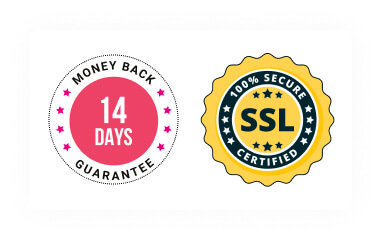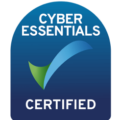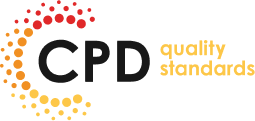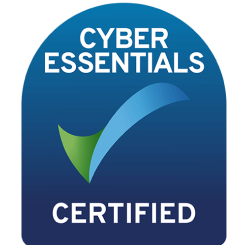Course Curriculum
| Induction Form | |||
| Induction Form | 00:05:00 | ||
| Registration Entry Form | |||
| Registration Entry Form | 00:05:00 | ||
| Unit 01: Organisational Planning and Processes | |||
| Lo1: Be Able to Plan and Organise Work and Review Processes Within the Organisation | |||
| 01. Taking Responsibility for Initiating and Completing Tasks | 00:00:00 | ||
| 02. Managing Priorities and Time in Order to Successfully Meet Deadlines | 00:00:00 | ||
| 03. Communicating Appropriately and Managing the Expectations of Colleagues | 00:00:00 | ||
| 04. Reviewing Processes and Making Suggestions for Improvements to Working Practice | 00:00:00 | ||
| 05. Strategic Approach to Improve the Accounts Payable Management Process | 00:00:00 | ||
| Lo2: Be Able to Manage Resources Within an Office Environment | |||
| 01. Maintenance of Office Resources and Effective Relationships with Suppliers | 00:00:00 | ||
| 02. Providing Administrative Services Document Production | 00:00:00 | ||
| 03. Providing Administrative Services Use of Email Software | 00:00:00 | ||
| Lo3: Be Able to Prepare and Organise Meetings | |||
| 01. How to Select a Meeting Venue and Carry Out a Risk Assessment | 00:00:00 | ||
| 02. Necessary Meeting Documents and Special Requirements of Attendees | 00:00:00 | ||
| 03. The Legal Requirements of Formal Minutes Taking | 00:00:00 | ||
| 04. Distributing Minutes and Carrying Out Follow-up Actions | 00:00:00 | ||
| Lo4: Be Able to Prepare and Organise Events | |||
| 01. Venue Requirements and Layout and Resource Management for an Event | 00:00:00 | ||
| 02. Distributing Pre-event Documentation and Considering Special Requirements of Event Attendees | 00:00:00 | ||
| 03. Post-Event Actions and Follow-up Actions | 00:00:00 | ||
| Lo5: Be Able to Organise Logistics | |||
| 01. Researching and Selecting the Right Supplier for Delivering Services within Budget | 00:00:00 | ||
| 02. Understanding and Taking Responsibility for Logistics | 00:00:00 | ||
| 03. Keeping Appropriate Records of Logistics Arrangements | 00:00:00 | ||
| Unit 02: Legislation, Structure and Finance in a Business Environment | |||
| Lo1: Understand Organisational Purpose and Structure | |||
| 01. Vision, Values and Purpose of the Organisation | 00:00:00 | ||
| 02. Impact of Political, Economic, Socio-Cultural, Environmental and other External Influences on Organisation’s Goals | 00:00:00 | ||
| 03. Strategic Analysis Tools | 00:00:00 | ||
| 04. Organisational Structure | 00:00:00 | ||
| Lo2: Understand Law, Regulations and Policies That Apply to Their Organisation and Role | |||
| 05. Legal Obligations of Different Types of Businesses | 00:00:00 | ||
| 06. Legal Obligations of the Employer for Health and Safety in the Workplace | 00:00:00 | ||
| 07. Impacts of Equality, Diversity and Inclusion | 00:00:00 | ||
| 08. Rquirements of Data Protection, Copyright and Intellectual Property Legislation Relating to Document Production | 00:00:00 | ||
| 09. Compliance to the Policies and Procedures of the Organisation and Ensuring Data Protection for Sending Emails and Attachments | 00:00:00 | ||
| Lo3: Understand the Principles of Managing Change | |||
| 10. Need for Change and the Consequences of Not Implementing Change | 00:00:00 | ||
| 11. Importance of Effective Leadership When Implementing Change | 00:00:00 | ||
| 12. Change Management Models | 00:00:00 | ||
| 13. Different Types of Barriers to Change and How to Deal With These Topics to Be Covered | 00:00:00 | ||
| 14. Change Management Projects | 00:00:00 | ||
| Lo4: Understand the Principles of Business Finance | |||
| 15. Principles of Business Finance | 00:00:00 | ||
| Unit 03: Communication in a Business Environment | |||
| Lo1: Be Able to Manage Stakeholder Relationships | |||
| 1. Stakeholder Identification and Their Relationship with the Organisation | 00:00:00 | ||
| 2. Managing and Working Together with Stakeholders | 00:00:00 | ||
| 3. Communication and Relationship Development with Internal and External Stakeholders | 00:00:00 | ||
| Lo2: Be Able to Communicate Effectively | |||
| 1. Various Methods for Effective Communication in Business | 00:00:00 | ||
| 2. The Style and Content of Communication According to the Audience | 00:00:00 | ||
| 3. Appropriate Response in Accordance with Organisational Policies and Standards | 00:00:00 | ||
| 4. Different Tools and Channels of Social Media for Business Use | 00:00:00 | ||
| 5. How to Plan and Create a Social Media Campaign for Your Business | 00:00:00 | ||
| Unit 04: Decision Making and Problem-solving in a Business Environment | |||
| Lo 1: Know How to Make Effective Decisions | |||
| 1. Defining the Objectives, Scope and Success Criteria of the Decisions to be Taken in a Business | 00:00:00 | ||
| 2. The Potential Impact of Various Options in Decision Making | 00:00:00 | ||
| 3. Making Effective Decisions Based on Sound Reasoning | 00:00:00 | ||
| 4. Considering the Views of Others and Seeking Advice During Decision Making | 00:00:00 | ||
| 5. Why Decisions should Align with Business Objectives, Values and Policies | 00:00:00 | ||
| 6. How to Communicate the Outcome of a Decision in an Appropriate Way | 00:00:00 | ||
| 7. How to Manage Challenging Situations in a Professional Way | 00:00:00 | ||
| Lo 2: Be Able to Resolve Business Problems | |||
| 1. How to Identify the Nature, Likely Cause and Implications of Problems in Business | 00:00:00 | ||
| 2. Resolving Business Problems with Good Judgement | 00:00:00 | ||
| 3. Resolving Complaints in an Effective and Timely Manner | 00:00:00 | ||
| 4. Considering the Views of Others When Solving a Problem | 00:00:00 | ||
| Unit 05: It Skills for Business | |||
| Lo1: Be Able to Use It Software to Create, Format and Present Documents | |||
| 1. Techniques for Editing Information | 00:00:00 | ||
| 2. Document Formatting | 00:00:00 | ||
| 3. Organise Large Documents | 00:00:00 | ||
| 4. Create and Modify Columns, Tables and Forms to Organise Information | 00:00:00 | ||
| 5. Select and Use Appropriate Templates | 00:00:00 | ||
| 6. Checking and Making Corrections Using Tools | 00:00:00 | ||
| Lo2: Be Able to Use Email Software Effectively | |||
| 7. Use Email Software Effectively | 00:00:00 | ||
| 8. Organise, Store and Archive Email Messages Effectively | 00:00:00 | ||
| 9. Send Email Messages to Individuals and Groups | 00:00:00 | ||
| 10. Use an Address Book to Organise Contact Information | 00:00:00 | ||
| 11. Use Email Software Tools and Techniques to Automate Responses | 00:00:00 | ||
| 12. Email Software to Manage Meetings and Calendar (Part-1) | 00:00:00 | ||
| Lo3: Be Able to Use a Spreadsheet to Enter, Edit and Organise Numerical and Other Data | |||
| 13. Data Entry and Structure in Spreadsheet | 00:00:00 | ||
| 14. Combine and Link Data From Different Sources | 00:00:00 | ||
| 15. Analysing Data and Functions | 00:00:00 | ||
| 16. Edit & Format a Spreadsheet | 00:00:00 | ||
| 17. Generate, Develop and Format Charts and Graphs | 00:00:00 | ||
| 18. Detect and Correct Errors in Formulas | 00:00:00 | ||
| Lo4: Be Able to Enter, Edit and Organise Structured Information in a Database | |||
| 19. Database Tools and Techniques and Use of It Tools | 00:00:00 | ||
| 20. Create and Run Database Queries | 00:00:00 | ||
| 21. Database Planning Process & Activities Overview (part-1) | 00:00:00 | ||
| Lo5: Be Able to Perform Financial Processes Using It Packages and Systems Relevant to the Organisation | |||
| 22. Organisation’s Financial Processes for Sales Invoicing, Purchasing, Payments and Receipts | 00:00:00 | ||
| 23. Financial Processes | 00:00:00 | ||
| 24. Managing Financial Records in an Electronic Environment | 00:00:00 | ||
| Lo6: Be Able to Contribute to the Development of the Organisation’s Administrative Systems | |||
| 25. Produce a Range of Documents and Records | 00:00:00 | ||
| 26. Improving Record Keeping System | 00:00:00 | ||
| 27. A Suitable Format to Present a Business Proposal | 00:00:00 | ||
| 28. Reviewing and Correcting the Errors | 00:00:00 | ||
| 29. Maintain Accessible Filing Systems and Records | 00:00:00 | ||
| 30. Manage Confidential Information in Compliance With Organisational Procedures | 00:00:00 | ||
| Unit 06: Project Management Skills for Business | |||
| Lo 01: Understand How to Manage a Project Using Relevant Project Management Principles and Tools | |||
| 1. The Features of a Project Business Case | 00:00:00 | ||
| 2. Explain the Stages of a Project Lifecycle | 00:00:00 | ||
| 3. The Roles of People Involved in a Project | 00:00:00 | ||
| 4. Various Aspects of a Project Plan | 00:00:00 | ||
| 5. Project Planning and Management Tools | 00:00:00 | ||
| Lo 02: Be Able to Scope and Plan a Project Using Relevant Project Management Principles and Tools | |||
| 1. Project Management Principles | 00:00:00 | ||
| 2. Project Management Methodologies | 00:00:00 | ||
| 3. Scope, Purpose and Stakeholders of a Project | 00:00:00 | ||
| 4. Planning Required Resources and Developing a Project Plan | 00:00:00 | ||
| Lo 03: Be Able to Manage a Project | |||
| 1. Implementing Plans within Agreed Budget | 00:00:00 | ||
| 2. Measure Project Progress | 00:00:00 | ||
| 3. Project Revision | 00:00:00 | ||
| 4. Reviewing and Revising Plans in Accordance with Project Objectives and Identified Risks | 00:00:00 | ||
| 5. Keeping Stakeholders Up-to-date with Project Progress | 00:00:00 | ||
| Lo 04: Be Able to Evaluate a Project | |||
| 1. Evaluating the Success of a Project | 00:00:00 | ||
| Unit 07: Development of Self and Others | |||
| LO1: Be able to manage personal and professional development | |||
| 1. Assessing Personal and Professional Development Needs. | 00:00:00 | ||
| 2. Getting Performance Feedback | 00:00:00 | ||
| 3. Planning, Executing, Reviewing and Revising Personal & Professional Development | 00:00:00 | ||
| LO2: Be able to contribute to team cohesion and productivity | |||
| 1. Demonstrating Necessary Level of Expertise | 00:00:00 | ||
| 2. Ways to Continuously Improve Work | 00:00:00 | ||
| 3. Becoming a Role Model_ Coach and Share Your Area of Expertise with Others | 00:00:00 | ||
| 4. Sharing Administrative Best Practices across the Organisation | 00:00:00 | ||
| LO3: Be able to use interpersonal skills to build and maintain positive working relationships | |||
| 1. Positive Working Relationships within Own Team and across the Organisation | 00:00:00 | ||
| 2. Demonstrating the Ability to Influence and Challenge Appropriately | 00:00:00 | ||
| Submit Your Assignments – NCFE Level 3 Diploma for Business Administrators | |||
| Submit Your Assignments – NCFE Level 3 Diploma for Business Administrators | 00:00:00 | ||
| Resubmit Your Assignments – NCFE Level 3 Diploma for Business Administrators | |||
| Resubmit Your Assignments – NCFE Level 3 Diploma for Business Administrators | 00:00:00 | ||
| End of Course Questionnaire | |||
| End of Course Questionnaire | 00:00:00 | ||

0
0
Your Cart
Your cart is emptyBrowse Courses
Upgrade to get UNLIMITED ACCESS to ALL COURSES for only £99/year
Claim Offer & UpgradeMembership renews after 12 months. You can cancel anytime from your account.
Other Students Also Buy


 1 Year Access
1 Year Access 
 0 Students
0 Students 

























